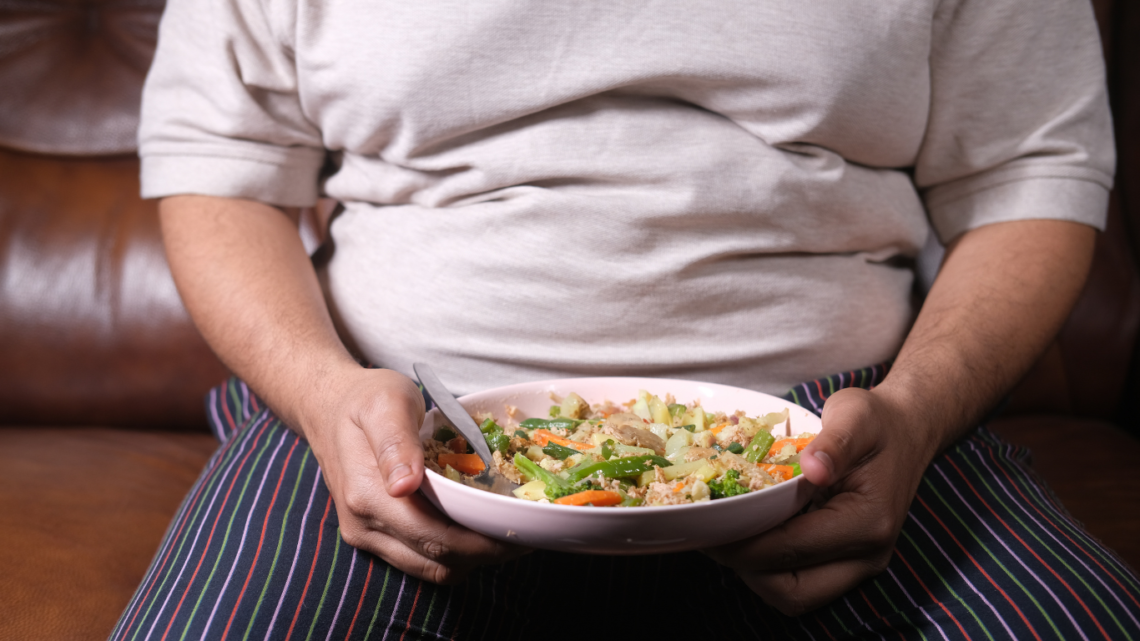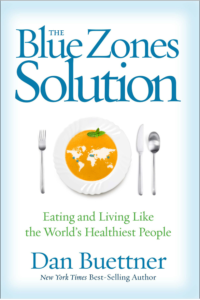Disclosure: This post contains affiliate links, meaning that if you are to make a purchase via these links, the blog author receives a small commission. This helps to fund the mission of Spencer’s Whole Foods Plant Based Eats and Treats, which is to be on the frontier in the fight against obesity and chronic disease in Trinidad & Tobago by contributing to changing the dietary environment of the nation.
As an Amazon Associate, the blog author earns from qualifying purchases.
Trinidad and Tobago has an obesity rate that is getting worse with time. This increase has been especially noticeable in the paediatric and adolescent population in the country.
The levels of obesity in children were so concerning that there was a Joint Select Committee formed in 2019 within the Trinidad and Tobago Parliament to address childhood and youth obesity specifically.
Here is Paul Richards, Independent Senator in the Trinidad and Tobago Parliament and Chairman of the mentioned Joint Select Committee, addressing this fact in the video below
The statistics quoted above are a great cause for concern. But there is a lingering question behind this data…
WHY?
Dr Layne Norton
It was in trying to answer this question that I came across this video by Dr Layne Norton of the Biolayne YouTube channel. Those who want to check out his videos in the link below:
https://www.youtube.com/@biolayne1
(This is not necessarily an endorsement)
And in the video, he mentioned something that I found to be quite interesting. Take a look below.
For those of you for whatever reason, cannot access the video, this is the link below:
https://youtu.be/naTPpTHR2ow?si=T48eJcKs3F7botjc
There were two parts of the video which caught my attention. The 1st part was this:
This lady has been able to build a platform for herself by essentially targeting desperate people who find it easier to not embrace the personal
responsibility aspect of this.And so, unfortunately, if she’s right if she really is right then there’s nothing any of us can do about obesity, nothing can be done.
He goes on to mention folks like David Goggins and I quote:
…there are millions of people who succeed. How does she explain those data points?
I can believe that there are millions of people who succeed at losing and maintaining weight. However, based on my viewpoint due to individual and community experience, the concept of personal responsibility when it comes to public health, specifically obesity and chronic disease, is overrated and overblown.
Why that last statement was made, will be addressed later.
The 2nd part of the video which caught my attention was this quote:
…but if you have no personal responsibility then you also have no power and you’re a victim and you’re helpless that is not really helpful messaging.
It may not be helpful messaging, but the more fundamental question is…
Is. It. The. Truth?
Yes. And No.
What do I mean by that?
It would be fundamentally naive to think that there is no personal responsibility or else every single person in the USA, Trinidad & Tobago or anywhere where there is significant Westernisation impact, will be either overweight or obese.
We all know that is not the case. However, as Dr Norton himself admitted:
…because yes most people fail but not everybody
And the data seems to lend credence to that fact. In the USA, 2 out of every 3 adults are either overweight or obese.
In children and adolescents, 1 in 5 in this age bracket are obese.
So does this mean that in the USA, 2 out of every three adults lack self-control and personal responsibility?
Or 1 in 5 children “eat too much and exercise too little”?
There has to be a more significant factor(s) at play when it comes to obesity and its associated ill-effect(s).
However, it may be no surprise that Dr Norton is a big ‘personal responsibility’ advocate. He is from the health and fitness industry. The health and fitness industry uses the personal responsibility concept as a pillar for its business model.
Paediatric overweight/obesity statistics in Trinidad & Tobago
Referring to the Paul Richards video clip earlier, he referenced data from the Global School Health Survey which sampled over 3000 students aged from 41 secondary schools in Trinidad & Tobago.
Just to reiterate the findings from the survey:
- 51.1% of the students sampled in 2017 in BOTH Trinidad and Tobago were either overweight or obese.
- 50.7% of the students in Trinidad in 2017 were either overweight or obese.
- 58.2% of the students in Tobago in 2017 were either overweight or obese.
- 17.6% of the students in BOTH Trinidad and Tobago in 2017 were classified as obese
- 33.5% of the students in BOTH Trinidad and Tobago in 2017 were classified as overweight.
- There was an increase in obesity levels from 2011 to 2017 in Trinidad, Tobago and nationally.
- Tobago had higher levels of being overweight and obese in 2011 and 2017 (surprisingly).
One can refer to this data from the 12th Report Joint Select Committee on Social Services And Public Administration On An Examination of the current level of childhood obesity and the State’s interventions to promote a healthy lifestyle among children
Adult overweight/obesity statistics in Trinidad and Tobago
The adults aren’t much better off in terms of being overweight or obese.
According to the Healthy Caribbean Coalition:
- 46% of adults in Trinidad and Tobago are either overweight or obese
- 37.1% of males and 54.5% of females in T&T are either overweight or obese
- 18.6% of adults in T&T are obese
- 10.8% of males and 26% of females in T&T are obese
Overweight/obesity summary in Trinidad & Tobago
So in short,
1 in 2 secondary school students in Trinidad and Tobago are either overweight or obese.
1 in 2 adults in Trinidad and Tobago are either overweight or obese.
Do you think that an overweight/obesity rate that high is due to personal responsibility?
‘You eat too much and don’t get enough exercise!’
‘You lack discipline!’
‘No self-control’?!
Well, according to the Trinidad Express, that seems to be the case.
However, preventing NCDs, also known as “lifestyle diseases”, begins with individual responsibility.
Sigh. Heaven help me with this!!
A Lesson from the Blue Zones
Healthaffairs.org addressed the concept of personal responsibility in this research article.
The first 2 sentences are as quoted:
The concept of personal responsibility has been central to social, legal, and political approaches to obesity. It evokes language of blame, weakness, and vice and is a leading basis for inadequate government efforts, given the importance of environmental conditions in explaining high rates of obesity.
I think the following video encapsulates the previous quote perfectly.
Terrence Deyalsingh vs Dan Buettner
The first speaker in the previous video is, at the time of writing, the Trinidad & Tobago Minister of Health; Mr Terrence Deyalsingh. He has been operating as the country’s Minister of Health from 2015 to now.
He is saying, in a nutshell, that each person in Trinidad and Tobago has control over his/her health outcomes, by controlling their personal environment and his/her food choices.
In other words:
IT’S ALL UP TO YOU!
To me, he is emblematic of the “…social, legal, and political approaches to obesity” that “…evokes language of blame, weakness, and vice.” and “…inadequate government efforts.”
The second speaker with the stark opposite viewpoint is Dan Buettner.
Dan Buettner is a National Geographic Explorer/Fellow and journalist. After an expedition to Okinawa, Japan in 2000 to investigate the longevity there, he set out to explore other regions of the world with reportedly high longevity. He later called these regions with longevity and vitality deep into old age, the “Blue Zones”.
What drove him to investigate these Blue Zones was that he wanted to find out the common underlying principles or “secrets” of longevity and vitality.
His work is chronicled in several books, one of which is The Blue Zones Solution: Eating and Living like the World’s Healthiest People(affiliate link)
A Lesson from the Blue Zones
Here is what Dan has to say about America’s health crisis and how the concept of personal responsibility DOES NOT WORK long-term when dealing with the obesity and chronic disease epidemic facing the USA and many other countries in the world.
In so many parts of the country, Americans are still drowning in a sea of cheap calories that are impossible to escape. We can’t walk through an airport, pay cash for gasoline, or buy cough medicine without being confronted by a barrage of salty snacks, candy bars, and sodas. High-sugar snacks are even disguised as “health bars.” Restaurateurs have figured out that they can make a bigger profit with bigger servings. So often we overeat when we go out for breakfast, lunch, or dinner. With help from the brightest minds on Madison Avenue, the food industry spends $11 billion a year to entice us to buy their products—mostly sugared, salted, flavor-enhanced processed foods like pizzas, pastries, chips, and sodas. The average American now consumes 46 slices of pizza, 200 pounds of meat, and 607 pounds of milk and other dairy products, and washes it down with 57 gallons of soda pop a year. We consume 8,000 teaspoons of added sugar and 79 pounds of fat annually. We eat 4.5 billion pounds of fries and 2 billion pounds of chips a year. Does that mean we’re bad people? That we lack the discipline of our forefathers? That we care less about our health and our children’s health than our grandparents did? Of course not. Then what has happened in this past half century? We’ve gone from an environment of hardship and scarcity to one of abundance and ease. How can we make the most of this abundance without letting it ruin our health?
The traditional answer has always had something to do with individual responsibility: Get on a diet and exercise program! The problem with that plan is that it requires long-term discipline and routine—both of which go against human nature and our evolutionary design. The human psyche craves the new and the novel; we get bored. Even if a strategy works for a while, the urge to try something new eventually takes over. Most people stick with diets for less than seven months, and often only weeks. Of 100 people who start a diet today, fewer than 5 will still be on that diet’s maintenance plan two years later. As a strategy to lose weight—much less to avoid heart attacks or live longer—diets are largely useless. Deploying discipline is like using a muscle. At a certain point, muscles fatigue, and eventually we break down and eat that bag of potato chips.
In Trinidad and Tobago, our pattern of eating isn’t much different from the USA. According to this Trinidad Express article, one million chickens per week are consumed in Trinidad and Tobago.
That equates to every person in T&T eating almost a whole chicken in a week.
Assuming that the weight of a whole chicken is about 4 lbs, that can equate to 208 lbs of chicken in a year.
Flavour to the bone!
And that’s just chicken. According to the former Minister of Agriculture, Mr Clarence Rambharat, chicken takes up approximately 50% of the meat consumption in Trinidad and Tobago.
So the average T&T national can be looking at about 400 lbs of meat in a year.
That’s A LOT OF MEAT!
To further drive home the affinity of meat, especially chicken, to the local ‘Trini’ palate, Trinidad and Tobago has the most KFC outlets per capita than anywhere in the world.
And then we wonder why Trinidad and Tobago have one of the highest rates of NCDs in the Caribbean.
If you find that fact hard to believe, hear the present Prime Minister of Trinidad & Tobago, Dr Keith Rowley, stating this very same fact.
That is why, Dr Norton, Trinidad Express, Mr Deyalsingh, this is why the concept of personal responsibility DOES NOT WORK! We, the individuals are fighting against two strong main forces:
- Our human nature (discipline only lasts for so long. Not many soldiers stay in the army/navy for life)
- The dietary and built environments that each of us dwell in
So what do the people in the Blue Zones do to stay healthy well into old age?
It can be summed up in one word.
Environment.
Here are some quotes from the book referenced earlier
The world’s longest-lived people don’t pump iron, run marathons, or join gyms. Instead, they live in environments that constantly nudge them into moving.
Eating habits were central, but they weren’t the whole picture. All the research showed that diets didn’t work, but the Blue Zones lifestyle did. To follow the Blue Zones approach meant making changes in lifestyle and environment, not just daily menus.
They never read labels, counted calories, weighed their protein, or signed up for Weight Watchers. Yet they all ate a nearly perfect diet without thinking about it. How did they do it? The surprisingly simple answer: They lived in environments that encouraged healthy eating. Fresh fruits and vegetables were affordable and readily available year-round. Sodas, chips, sweets, and burgers—foods they might like to eat too, just as we do—were hard to find.
In the Blue Zones, on the other hand, food and lifestyle decisions flowed from the environment, and their surroundings provided them with only healthy choices.
As you can see, the consistent theme throughout the book in every single Blue Zone was how the environment in each Blue Zone made it easy and almost ‘effortless’ to be healthy.
On the other hand, the environments in Trinidad & Tobago and the USA are geared towards obesity.
Here is Dr. Rohit Doon, Adviser, Health Promotion, Communications and Public Health in the Trinidad and Tobago Ministry of Health, referred to the change in the dietary environment in Trinidad and Tobago from the 1960s and 1970s to now. He commented that Trinidad and Tobago “now operate in an obesogenic environment”.
Here is what he had to say in the video clip below:
Mr Andrew Dhanoo, President of the Diabetes Association of Trinidad and Tobago (DATT), also talked about the ‘obesogenic environment’ when talking about the heavy chronic disease burden in Trinidad & Tobago and the COVID-19 death rate.
“We simply have too many cheap, convenient, high-calorie foods available to us, and not enough opportunities to expend this excess energy we consume,” he said.
“These items have also become so convenient, you can stand on any street in any city or town in T&T, spin around and you are guaranteed to see at least one fast food restaurant…. We now have an obesogenic environment, giving rise to increasing waistlines and the NCDs which develop because of it.”
Andrew Dhanoo, DATT President. Sunday Express Sept 11, 2021
To drive the point home about the power of the environment on the health of an individual, let’s take another peek inside the book referenced earlier.
During his stay in North Karelia, Finland, he hired a 20-year-old woman named Elisa Korpelainen as his translator.
Elisa had recently returned from Ireland, where was a kennel and stable hand trainer. She did it for 11 months, and she did admit that it was rigorous labour. However, despite the rigorous nature of the job, she gained 8 lbs due to the food she had eaten there.
However, in 3 months after returning to North Karelia, she shed the 8 extra pounds.
Dan asked her if she went on a diet or started working out.
“No, I actually work less than I did in Ireland,” she said.
“Then what did you do to lose all that weight?”
“Nothing,” she replied blankly. “I just moved home.”
Conclusion
According to Psychology Today, Kathleen Vohs, a professor of consumer behaviour at the University of Minnesota’s Carlson School of Management, is not surprised to hear stories of people pushing themselves so hard that they break down. “Self-control is in many ways a limited resource, like a muscle that gets depleted if overworked,” she says.
This is why the blog author profoundly disagrees with individual/personal responsibility. From an individual and a population perspective, individual/personal responsibility has limited long-term success. The plain truth in Trinidad and Tobago is that the population is overweight or obese because the environment favours obesity.
- There are 60 KFC outlets throughout the twin island state, “…to ensure easy access to its products”
- There are now more companies that offer fast food to the population e.g. Pizza Hut, TGI Fridays, Subway and Starbucks.
- The quintessential diet in Trinidad & Tobago is an energy-dense diet with a lot of processed foods (which, at most times, has added sugars and fats), animal souced foods (meat, dairy, eggs), added fats, oils, sugar and refined carbohydrates (or in plain terms; roti, doubles, aloo pie, saheena, macaroni pie, large meat portions e.g. leg & thigh, breast and wing, side breast, centre breast etc).
- The built environment encourages sedentary behaviour. A working-age individual in Trinidad and Tobago can be in traffic congestion for as long as five to six hours.
- There is the very pressing issue of violent crime, which discourages the population from doing many activities in outdoor spaces.
That last point is a valid concern for the whole population in Trinidad and Tobago; which makes this statement made by the present Minister of National Security even more egregious.
Popular food items in Trinidad & Tobago
It is the post author’s firm belief that the ONLY way that Trinidad and Tobago (and by extension, the Caribbean) is going to get noticeably healthier is by changing the dietary & built environment, just like what Pekka Puska and his team did in North Karelia in Finland.
It is not a problem that will be solved overnight or in short order, but if the citizens of the country commit to making incremental changes at the grassroots level and the legislators implement policies to:
- make healthy food accessible and affordable
- make unhealthy food less accessible
- encourage exercise/movement
we would have less chronic disease, less healthcare costs and a healthier and happier population.
Shameless Plug-in
Spencer’s Whole Foods Plant Based Eats & Treats was born out of acknowledgement of the poor dietary environment in Trinidad & Tobago being a major contributing factor to the burgeoning problem of obesity and chronic disease in the country.
It is the belief of the company that one of the better ways to get the population to eat healthier is by making available tasty plant-based food for the public to partake in so that the citizens will be more open to eating healthy food and know that healthy food doesn’t have to be bland and tasteless.
Mmmmmm…delicious
Actually delicious plant-based food (third-party approved)
Here is a clip showing the treats that are offered in various pop-up events:
Hopefully, as the company scales up, there will be more food dishes on offer.
(The following only applies to people residing in Trinidad & Tobago)
At present, the company does orders upon request of baked dessert items. The dessert items are also on sale at NAMDEVCO San Fernando Farmer’s Market every Saturday unless otherwise notified.
The company is also present at various pop-up events throughout the country. Stay tuned, an upcoming events page will be launched soon, so that one can be notified of which pop-up event the company will be present at a particular time.
Location of NAMDEVCO San Fernando Farmer’s Market
Finally, if you want to check out Dan Buettner’s book The Blue Zones Solution: Eating and Living like the World’s Healthiest People, you can either click on this link or this link or you can check out the Resources page.












Incredible! This blog looks just like my old one!
It’s on a completely different subject but it has
pretty much the same page layout and design. Outstanding
choice of colors!